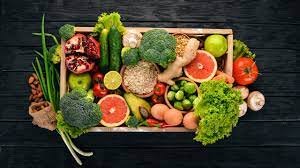Diet & Nutrition for Fertility

Diet & Nutrition for Fertility
It is important to remember that nutrition and other related lifestyle decisions have an impact on fertility. Dietary modifications can have a notable and quantifiable impact on fertility, whether they are undertaken independently or in conjunction with reproductive treatment.

Foods that Boost Fertility
- Greens for Fertility
- Foods High in Omega-3 for Hormone Balance
- Berries to Boost Antioxidant Power
- Lean Proteins for fertility.
- Citrus fruits for folic acid and vitamin C
- Whole Grains to Regulate Blood Sugar and Balance hormones
Greens for Fertility
Leafy greens, which are an excellent source of folic acid, vitamin-B that is essential for a safe pregnancy. It is well known that folic acid can shield infants from neural tube abnormalities. Nevertheless, because it aids in ovulation, fertilization, and embryonic development, its advantages begin even before conception. These greens can make a simple yet powerful side dish, salad, or smoothie to add to your fertility-boosting diet.
Foods High in Omega-3 for Hormone Balance
Omega-3 fatty acids are essential for general health and reproduction. Fatty fish, such as salmon, mackerel, and sardines, are excellent providers of heart-healthy fats. In addition to controlling hormones, they enhance egg quality and may even postpone the ovaries’ aging process. A few times a week of fatty fish consumption can help your fertility journey.

Foods High in Omega-3 for Hormone Balance
Omega-3 fatty acids are essential for general health and reproduction. Fatty fish, such as salmon, mackerel, and sardines, are excellent providers of heart-healthy fats. In addition to controlling hormones, they enhance egg quality and may even postpone the ovaries’ aging process. A few times a week of fatty fish consumption can help your fertility journey.

Berries to Boost Antioxidant Power
Berries are not only delicious but also a great source of antioxidants like vitamin C and folate, which shield sperm and eggs from any damage caused by free radicals. You may simply include raspberries, blackberries, blueberries, and strawberries in your diet by adding them to smoothies, cereal for breakfast, or as a snack.

Lean Proteins for Fertility
The building elements of every cell in our body, including sperm and egg cells, are proteins. Lean protein sources found in plants, such as lentils, beans, and tofu, give the body the essential amino acids. The saturated fats included in some animal proteins are not added by these sources. Additionally, iron is present in these proteins, which enhances fertility.

Citrus fruits for Vitamin C and Folic Acid
Citrus fruits, such as oranges, grapefruits, and lemons, are high in vitamin C, potassium, calcium, and folate. These nutrients are essential for healthy egg development and ovulation. It can be as easy as adding orange slices to a salad or squeezing some lemon juice into your water to include citrus fruits in your diet.

Whole Grains for Hormonal Balance and Blood Sugar Control
Whole grains, oats, and brown rice are examples of complex carbohydrates that are vital for sustaining stable insulin and blood sugar levels. Variations in these quantities have the potential to disrupt ovulation. Furthermore, complex carbohydrates are high in fiber, which helps the body eliminate excess estrogen, which in turn helps regulate hormones. Making the switch from white to whole-grain bread and from white to brown rice can have a big impact.
Foods to be avoided
Avoiding some foods is necessary when preparing for pregnancy.
- Junk food or processed food
- Sugary foods.
- Coke and other carbonated beverages
- Excessive amounts of caffeine
- Foods heavy in carbohydrates but low in nutrition, such as bread, pasta, and pizza
- Processed Meat.
